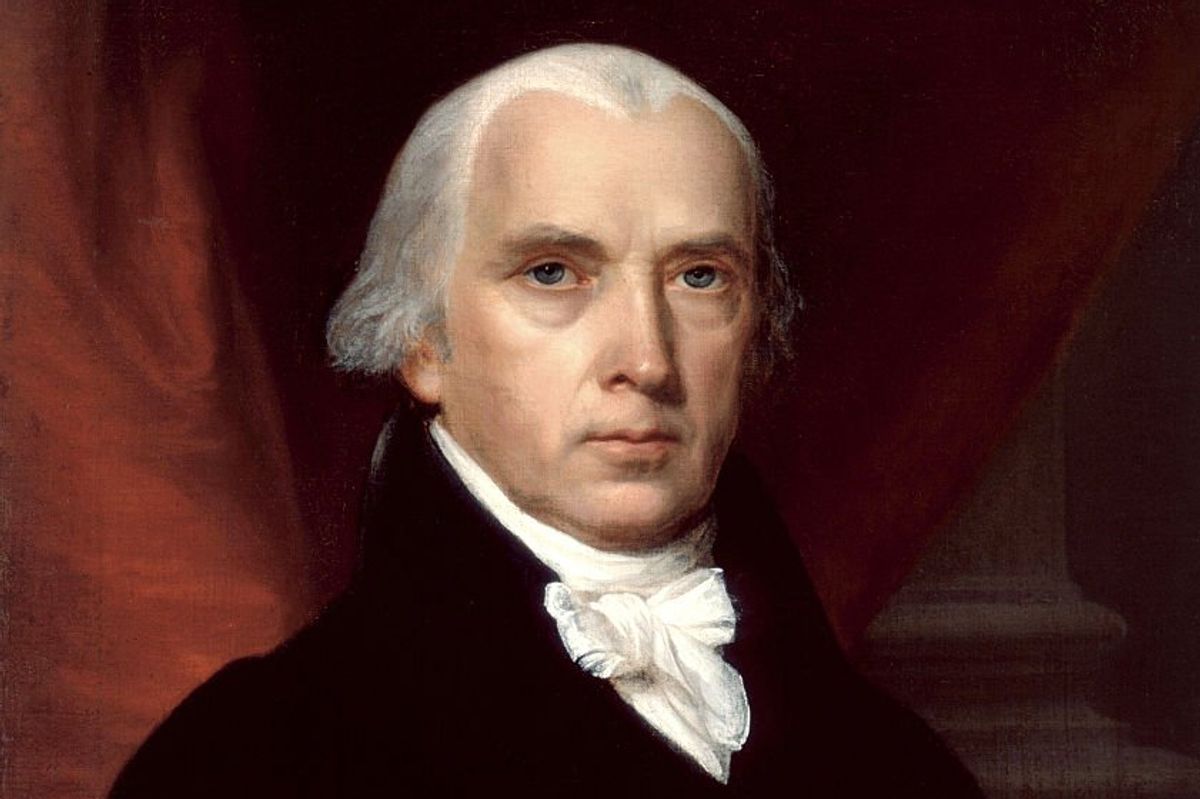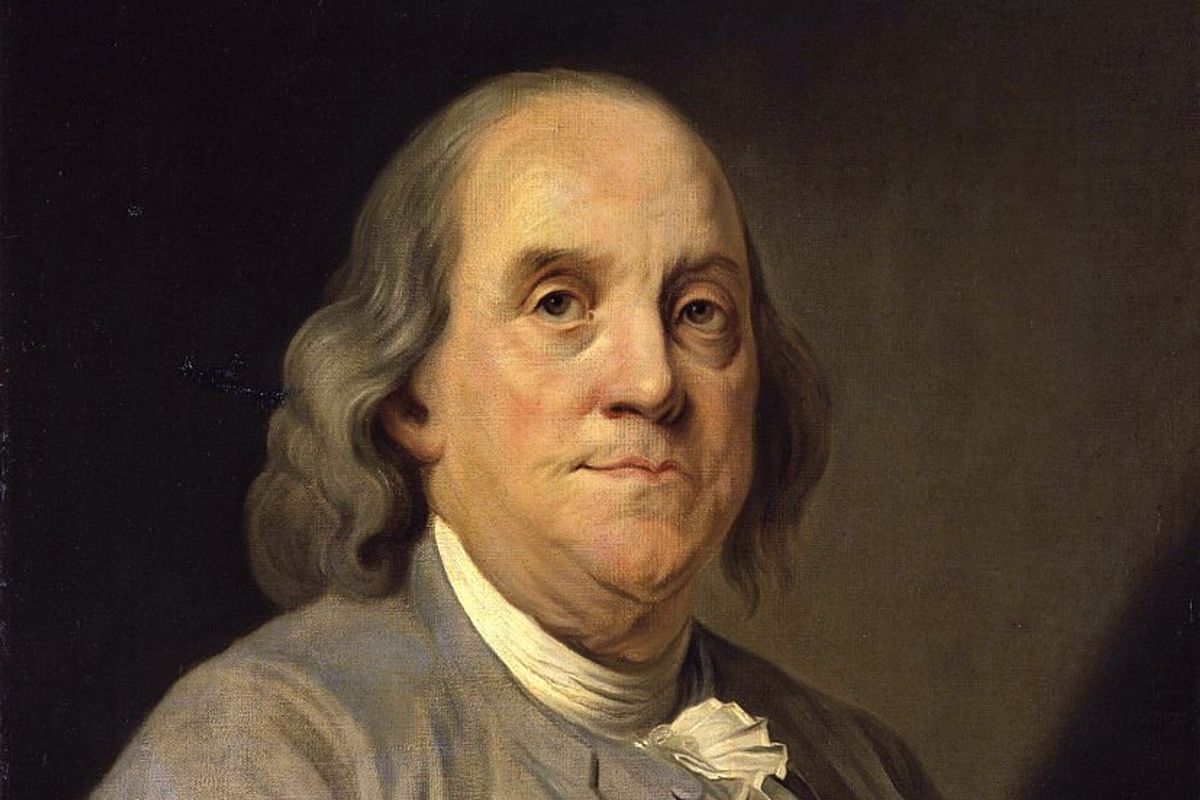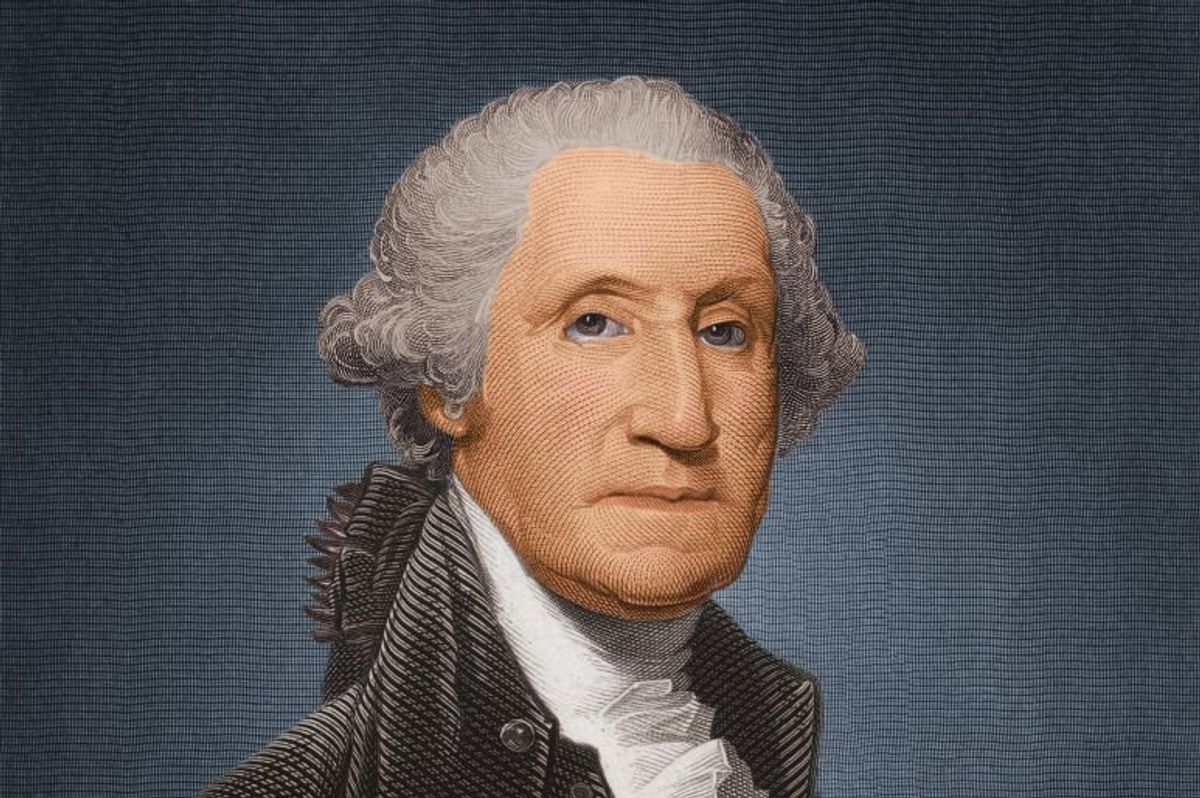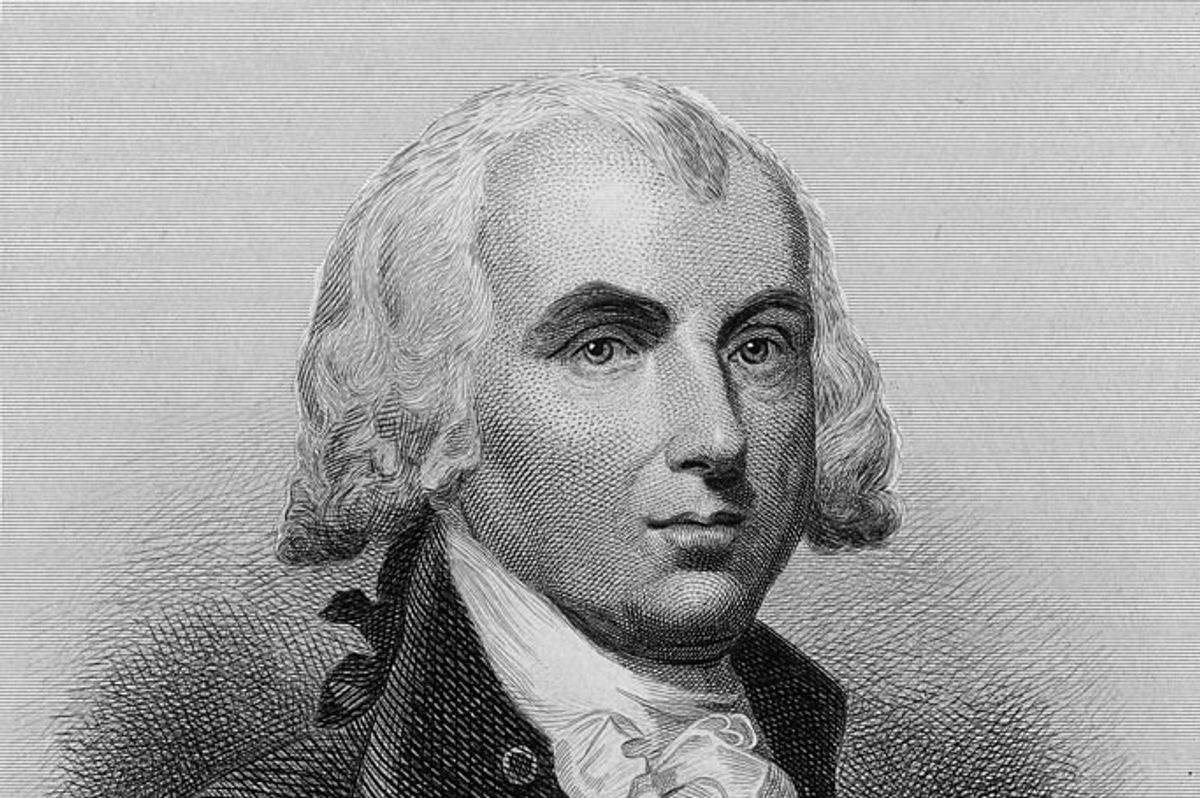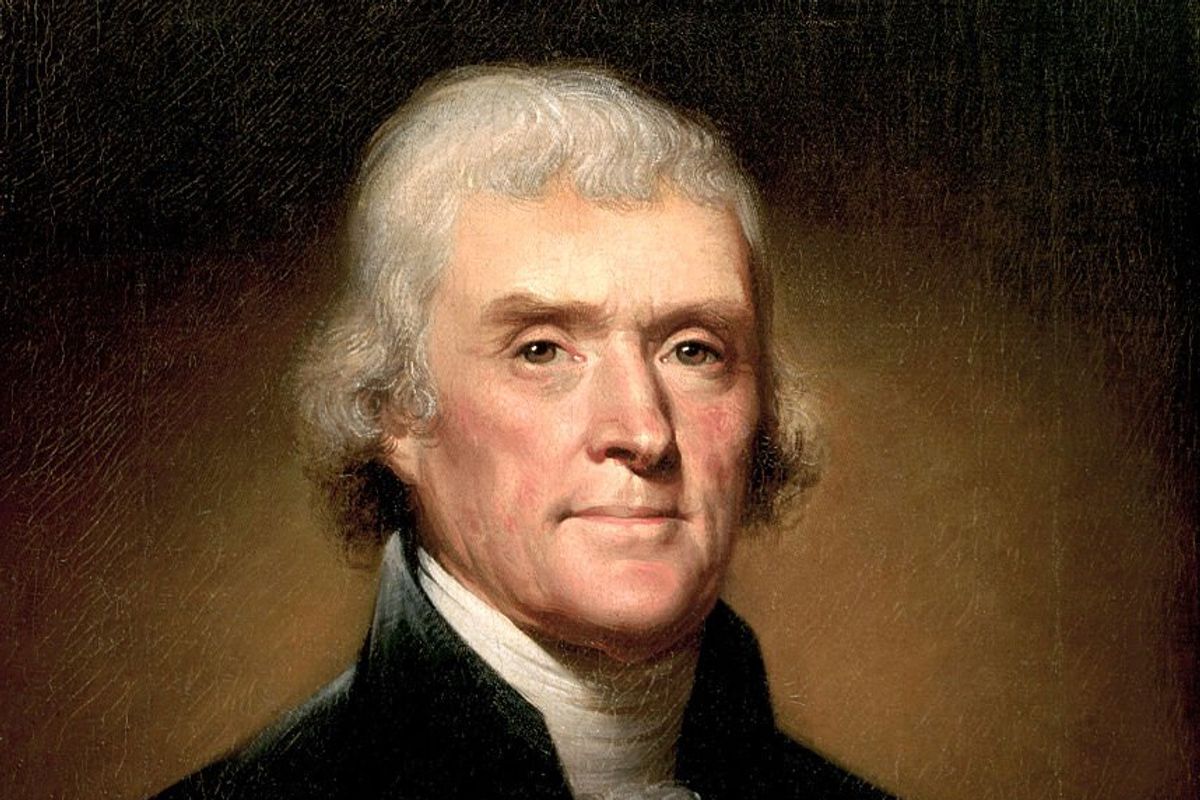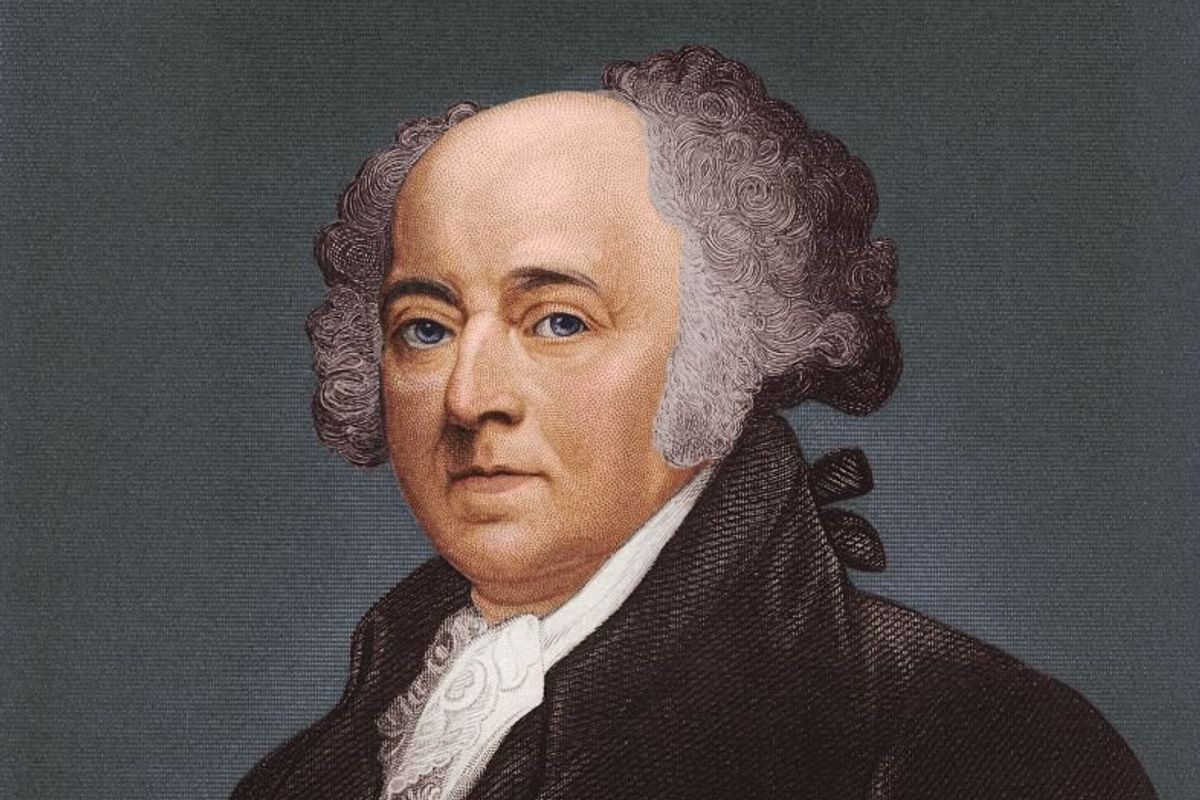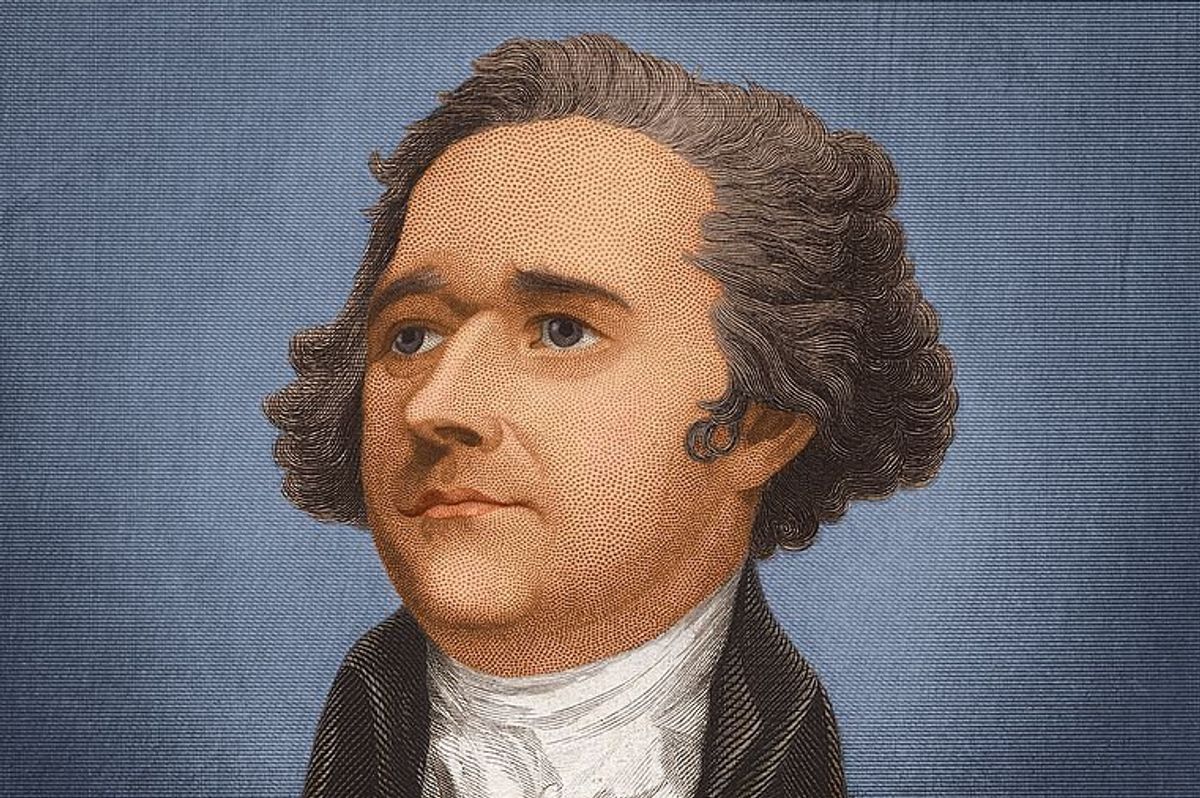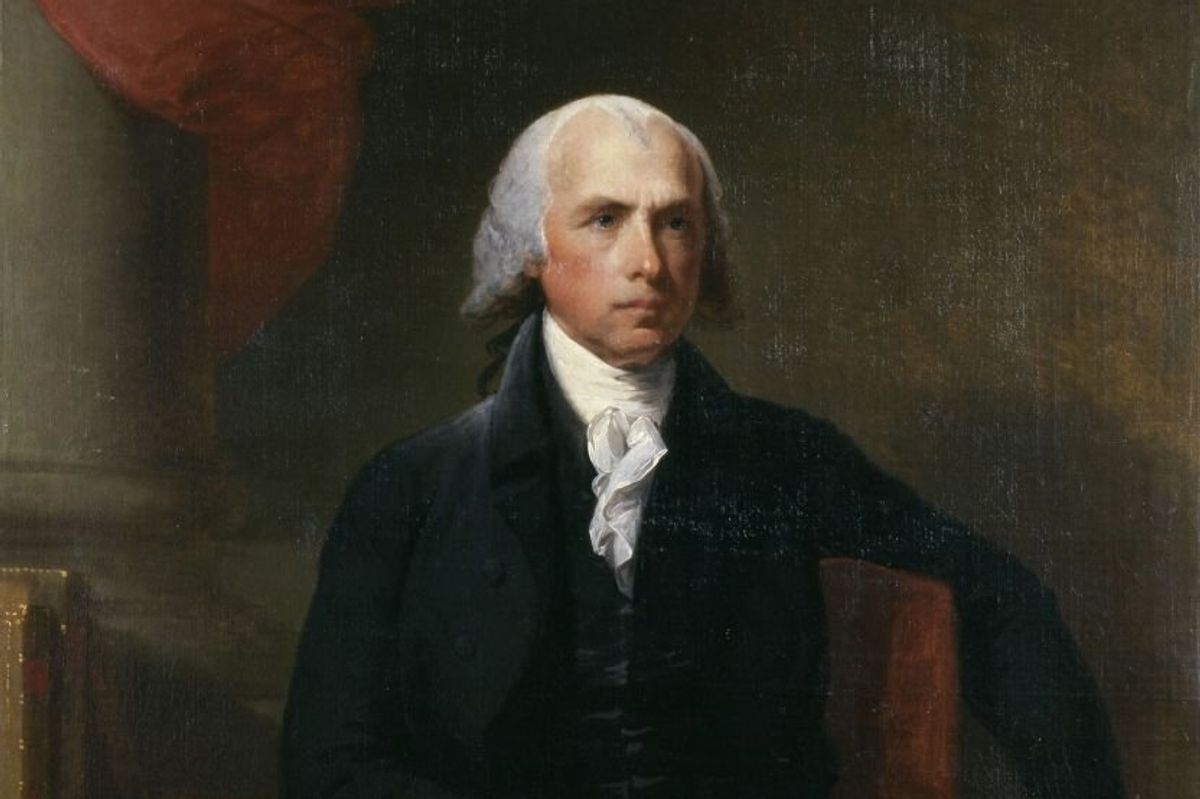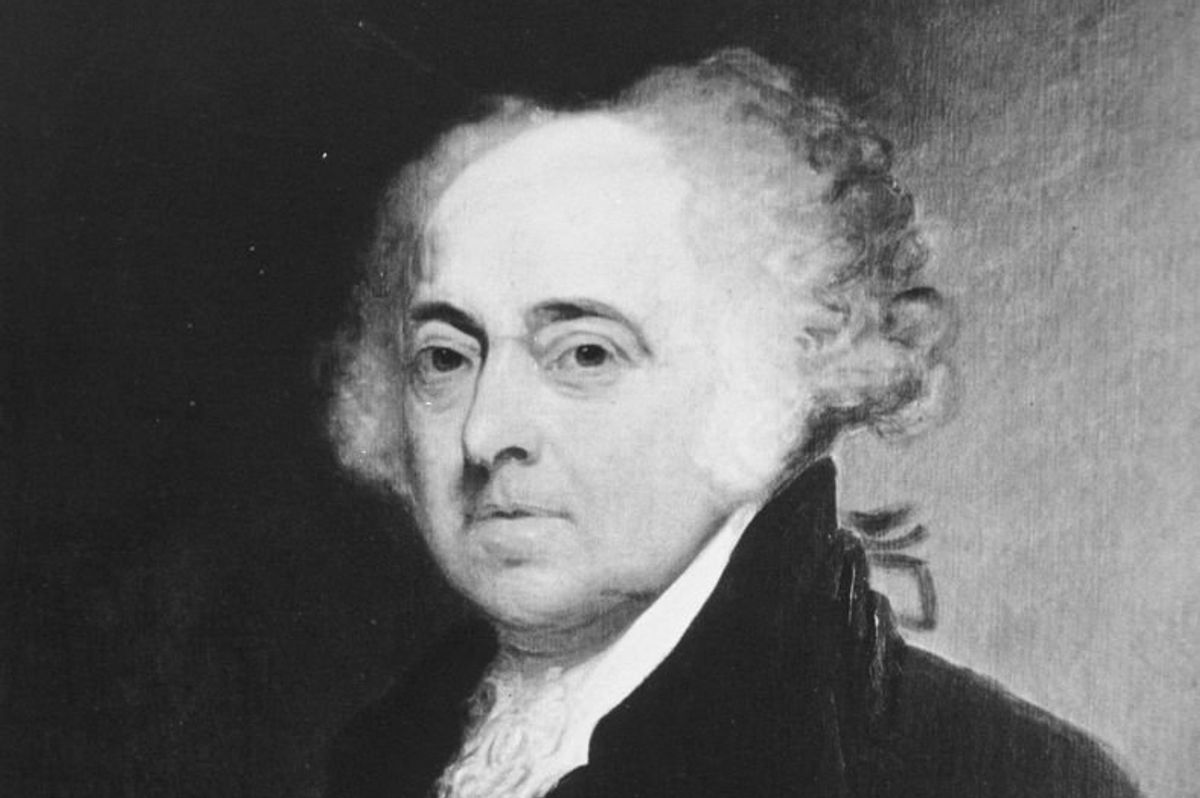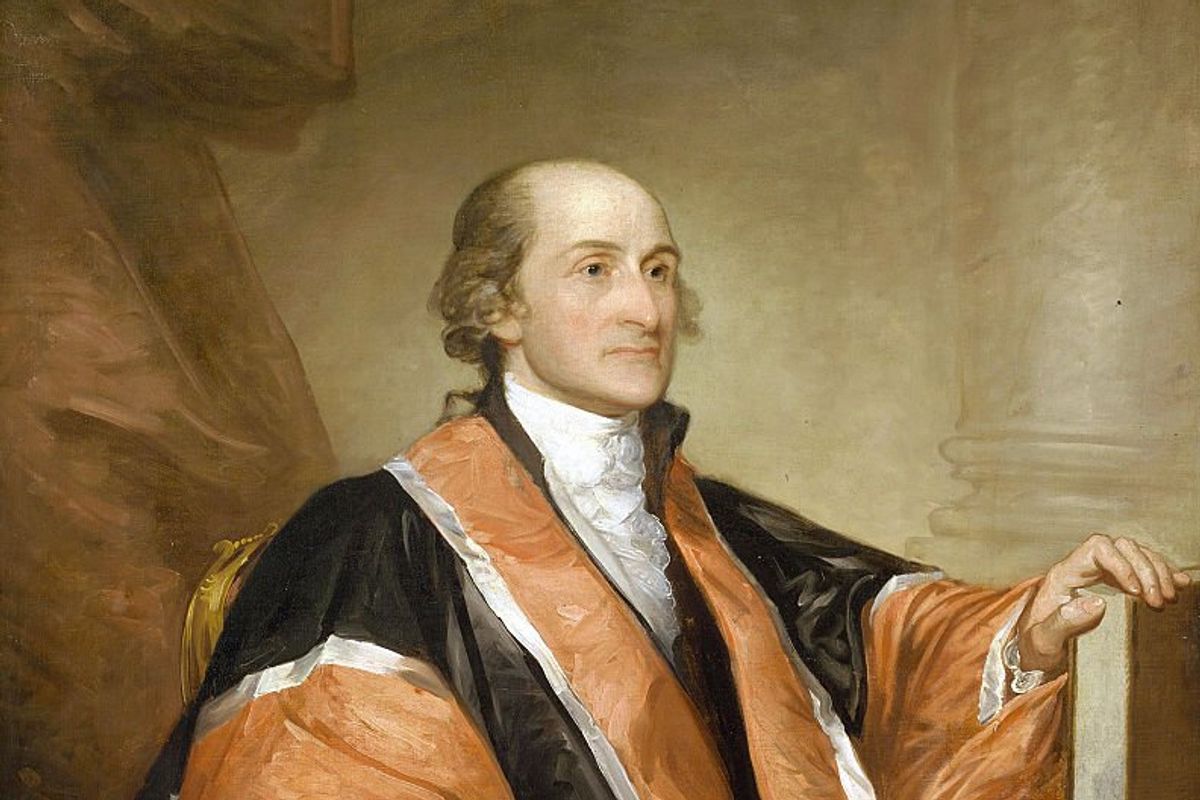GLENN: Got some good news: There is a black group in Dallas that has vowed to protect the Confederate monuments here in the Dallas/Fort Worth area. It is in direct contrast to the way people are acting elsewhere. This black group here in Dallas said, "You know what, they don't affect my life, they're all dead, and it is part of our history."
Should we have perspective on those things? Yeah. Should we just start tearing monuments down? You know, I -- I would suggest that's part of our problem, that we are destroying everything. Remember when I said to you, "Everything that you thought was solid would be liquid, and liquid will be solid?" The entire country is being turned inside out and upside down.
We'll show you, first of all, how that's being done, why that's being done. But by the end of this hour, I think you will also understand who's really behind this. And it's not your neighbor, no matter who they voted for. We begin there, right now.
(music)
Let me give you the story: An anti-Trump activist has been accused of executing his neighbor who was a prominent Republican and Donald Trump supporter. Clayton Carter allegedly shot George Jennings, 51, twice in the head outside of his home in Pennsylvania in the early hours of August 8th.
Clayton Carter, 51, accused of shooting his neighbor, George Jennings.
Now, you can take this story, and you can spin it this way: Clayton had a whole bunch of Donald Trump signs in his front yard.
PAT: Anti-Trump.
GLENN: Or, I'm sorry. Yeah, anti-Trump in his front yard. He's the guy who did the shooting. The neighbor who was shot was pro-Trump. He was pro-G.O.P. They had been going at it forever.
The anti-Trump guy had enough of his neighbor and executed him. Put a bullet in his head. And then as he came down, put a second bullet in his head.
PAT: As his wife looked on.
GLENN: Now, this is the story I could tell. Or I could go a little deeper and say, "Yes. He was a rabid anti-Trump guy." And I could just make a case, "Now, all anti-Trump people are angry and violent and they're all going after their neighbors. If you disagree with them, they'll put a bullet in your head. Because that's how angry they really are." I could get you whipped up into that.
Or I could say, "You know what, there's probably something more." And once you do that homework, you realize this guy is -- the anti-Trump guy is angry all the time about everything. He's a guy who likes, it seems, to be angry. And nobody gets along with him in the neighborhood. And these guys had been arguing for years.
It was the Hatfields and McCoy. We -- we need to stop looking at just the political motivations in things. We also need to stop making generalizations of everyone based on who they voted for. Here's a guy who was anti-Donald Trump. Look, he shot his neighbor -- executed his neighbor. Shot him twice in the head. That's just like those anti-Trump people. Look how angry they all are.
Why are they angry? Why are they angry? And who is making them angry? And why is the left angry? And who is making them angry?
On both sides, I think both sides have a reason to be angry. We can get into whataboutism all you want, but I'm not talking about the fringes. I'm talking about the people that you know. The people that you've been friends with, who are not crazy. Why are they so angry?
Something is playing on them, beyond politics. Now, let me say -- first, I want to separate that group. That's the group of people you know on both sides of the aisle. Then there's another group. And these guys -- these groups deal in anger and rage and hatred.
Vice happened to be in Charlottesville over the weekend. And so they were doing a special on this white nationalist group. This is the alt-right. This is anybody who was, you know, posting little pictures of the frog and -- and, you know, starting -- you're just a cuckservative. That all came from the alt-right. All that language that so many of your friends adopted was started by the alt-right. Now, that doesn't make them an alt-right person. It just means they weren't aware of who these people are. And let's show you who these people are, on both sides.
Listen to this.
VOICE: Jews will not replace us! Jews will not replace us!
GLENN: Jews will not replace us.
VOICE: Jews will not replace us!
PAT: So that's what they're worried about, they're worried about being replaced by Jews. And, you know, who can blame them?
(laughter)
STU: Well, I can blame them.
GLENN: There's 16 million Jews on the planet. They all have to have ten jobs each -- ten full-time jobs each just to cover the jobs in the United States.
PAT: Well, just in America. Yeah. Yeah.
GLENN: Just in America. And I'm very concerned about that.
STU: I wouldn't say white nationalists are known for their math. I wouldn't say that's one of their strong suits.
GLENN: Right. Right. Well, they're socialists, so they believe in the big state. So they're probably for Common Core.
STU: Oh.
PAT: I'm worried about the Frisbeetarians. Because they have replaced a lot of people already.
STU: Frisbeetarians?
PAT: Yeah. The people who believe that when you die, your soul goes up on the roof and you can't get it back down.
GLENN: Yeah, like a Frisbee.
JEFFY: Yeah.
PAT: Yeah. Yeah.
STU: I've never heard of it.
GLENN: Oh, yeah. No, it's big. It's really big. It's in Clear Water, Florida, I believe. The head of the Frisbeetarian Church.
JEFFY: Yes, it is.
GLENN: But, anyway, we digress.
PAT: Here's more.
VOICE: I'm here to spread idea, talk, in the hopes that somebody more capable will come along and do that, somebody like Donald Trump who does not give his daughter to a Jew.
PAT: Oh, man.
VOICE: So Donald Trump, but, like, more racist?
VOICE: A lot more racist than Donald Trump.
I don't think that you could feel about race the way I do and watch that Kushner bastard walk around with that beautiful girl. Okay?
PAT: Is that unbelievable?
STU: Unreal.
PAT: How do you get to feel that way about Jewish people? How does that happen? I don't even understand the Jewish hate. I don't even get it.
GLENN: You have to be taught. You have to be taught. You're not born with that kind of stuff.
PAT: No. Why would you be? Unless you're Palestinian, and then you've grown up in it, and you've gone to kindergarten and they've taught you all these things.
In America, how does that happen? How does that happen?
GLENN: I have no idea. I have no idea.
PAT: Bizarre.
GLENN: I didn't even know a Jewish person until my agent George Hilsink (phonetic). I mean, I was, what? Thirty? Not that I -- I may have known -- I never like, oh, you're Jewish, what's happened with -- I don't. I'm sure I knew them. I didn't care. We didn't talk about it. It was no big deal.
STU: You treat people as individuals. Which is kind of how you're supposed to do it, I think.
But, I mean, you look at it, and that clip sounds like it's going to be the typical media attack against Donald Trump. And you realize that, you know, that was not what it was at all. That is this guy saying, "You know, Donald Trump isn't going nearly far enough for me." And this is why you want Trump to come out and disassociate himself with these people as strongly as possible.
GLENN: And also --
STU: Look, obviously Donald Trump does not believe what this moron believes. You look at who he's put in his administration, besides his daughter and his --
GLENN: Please tell me there's no more Jews in that.
STU: There's lots of them.
GLENN: Oh, my gosh!
STU: He was doing -- he was behind -- Gary Cohn and Steve Mnuchin were right behind him when he was doing the press conference yesterday.
GLENN: Thank goodness -- he didn't have any black people in, does he?
STU: You know what, yeah. Yeah.
GLENN: Holy cow.
STU: This is stunning.
GLENN: I didn't know. Jews and blacks, both working in the government?
STU: Yeah. Yes. Yes.
PAT: Side by side. Side by side.
GLENN: Holy cow. Holy cow.
STU: This guy is going to be pissed off about it, I'm sure, in this audio.
GLENN: So this is -- again, just showing you --
PAT: It's bizarre.
GLENN: You do not defend, excuse, or play whataboutism.
PAT: Uh-huh.
GLENN: The minute you say -- you hear this. No. Stop. You hear this. You do not follow this with, "Yeah, but -- you know, the other side is -- I don't care what the other side is doing. You know what that is? You know what that makes you sound like? Everyone we have railed against since September 11th. "Yes, I'm against the terrorists, but I will tell you that you guys have done -- you stopped listening to those people.
PAT: Yeah.
GLENN: And this is the problem with Donald Trump's speech.
If you are not absolutely crystal clear, these guys are an enemy of not the United States, not of mine. Of mankind.
There's no whataboutism. There's no other side. There's nothing. We're talking about them right now.
PAT: And --
GLENN: Believe me, I'll get to the other side later. We're talking about them. There's no way you stand or dismiss or do anything, but say, "That's poison. I am as far away from that as possible."
STU: And you can watch CNN all day and find -- and anyplace, and find people denouncing white supremacists. Some of them are just doing it hyper partisan, Trump reasons. Some of them are doing it, and they are completely right, word-for-word, I would agree with them. The issue here though is, none of those things mean anything to white supremacies. None of those denunciations coming from CNN or MSNBC mean a thing. It would mean something from Donald Trump. And that's you want him to be so passionate about it, more passionate than a guy leaving your economic council.
GLENN: Right. They don't -- they don't mind being on the fringe. They like being on the fringe. That's where they -- that's the only place they can grow in darkness. The president shining a spotlight on them is really important.
But I really don't care about how they feel. I really don't. What I care about is that we have drawn a very bright line all around them. And said, "Do not cross this line." To our side. To our side.
See this group of people. This is what they believe. Stay a million miles away from them. It's not about them. It's about us.
I'm not going to excuse. I'm not going to play whataboutism, at all. I won't. They're wrong. They're evil. And they are an enemy to humanity.
Next clip, please.
VOICE: Trump wasn't able to beat us. The left, who are the good boys of the capitalist class and the bourgeoisie and the status quo.
GLENN: Okay. Stop for a second. Stop. Hang on just a second.
What was that? What was that? Capitalists?
STU: What word was that? Capitalists?
GLENN: Yeah. What is he saying there, Stu?
STU: Hmm. He seems to be against capitalists.
GLENN: Capitalists.
PAT: Uh-huh. The bourgeoisie.
GLENN: And the bourgeoisie. I'm sorry. The only person I have ever met in my life and have even seen in movies that uses the word "bourgeoisie" are Marxists.
PAT: Well, Marxists and Jeffy, who doesn't like bougie sauce.
JEFFY: Right. Thank you.
STU: That's true.
PAT: He uses that on a regular basis, but not the entire word. Because he doesn't know it.
GLENN: Right. Right.
STU: But you're right. The bourgeoisie -- this is -- and it's an attack used, by the way, as people you might know as national socialists.
PAT: Yeah.
STU: They don't like capitalism. They crushed it --
GLENN: So wait a minute. By listening and exposing these people, you now can see in their own language, when they say "alt-right," they mean alternate right, as in defining the word alternate, a replacement of the right. They cannot co-exist with the right because they do not believe in the Constitution. They believe in a Marxist, socialist, heavy government state.
They have nothing to do with us. Draw a bright line around that.

 Corey Comperatore's firefighting gear outside the Buffalo Township Volunteer Fire Company. The Washington Post / Contributor | Getty Images
Corey Comperatore's firefighting gear outside the Buffalo Township Volunteer Fire Company. The Washington Post / Contributor | Getty Images Corey_Comper/X
Corey_Comper/X











